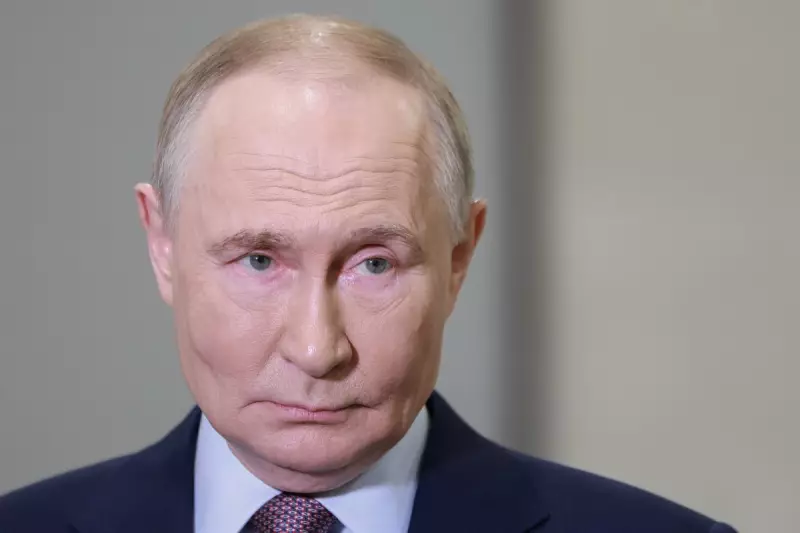
In a dramatic escalation of military posturing, Vladimir Putin has confirmed Russia's successful test-firing of the nuclear-capable Burevestnik cruise missile, a weapon the Russian president describes as having 'unlimited range'. The announcement comes amid intense fighting in Ukraine, where Kyiv's forces have reportedly struck a significant blow against Moscow's naval command.
Putin's Strategic Missile Demonstration
The Russian leader revealed the Burevestnik test during a televised meeting with defence minister Sergei Shoigu, stating the weapon system was progressing toward final deployment. 'We have just successfully tested the Burevestnik nuclear-powered global-range cruise missile,' Mr Putin declared, adding that work was 'successfully concluding' on another key weapon system, the Sarmat heavy intercontinental ballistic missile.
This demonstration of military capability appears timed to reinforce Moscow's strategic position as Ukraine continues to make gains in the ongoing conflict.
Crimean Strike Rocks Russian Naval Command
In a separate but equally significant development, Ukrainian forces launched a precision strike on the headquarters of Russia's Black Sea Fleet in Sevastopol, Crimea. The attack, which occurred on Friday, represents one of Kyiv's most audacious operations against Russian military infrastructure in occupied territory.
While Moscow initially claimed one serviceman was missing following the assault, subsequent reports from Ukrainian sources suggest the casualty count may be substantially higher. The strike demonstrates Ukraine's growing capability to target high-value Russian assets in supposedly secure locations.
International Reactions and Nuclear Concerns
The timing of Putin's missile test announcement raises concerns about potential nuclear escalation. The Burevestnik, known by NATO as the SSC-X-9 Skyfall, represents a new generation of Russian strategic weapons that Mr Putin claims can evade existing missile defence systems.
Western intelligence agencies have monitored the Burevestnik's development with concern, particularly given its nuclear propulsion system and theoretically unlimited range. The successful test underscores Russia's commitment to advancing its strategic arsenal despite economic sanctions and military commitments in Ukraine.
Black Sea Fleet's Vulnerabilities Exposed
The attack on Sevastopol highlights continuing vulnerabilities in Russia's Black Sea operations. Since the invasion began, Ukraine has repeatedly targeted Russian naval assets, sinking the flagship Moskva and damaging several other vessels.
This latest strike against fleet headquarters suggests Ukrainian intelligence has penetrated Russian security in Crimea, dealing both a practical and symbolic blow to Moscow's military prestige in the region.
As the conflict continues, both sides appear to be escalating their military capabilities and targeting strategies, with Friday's developments marking a significant intensification in the nearly 20-month-long war.





